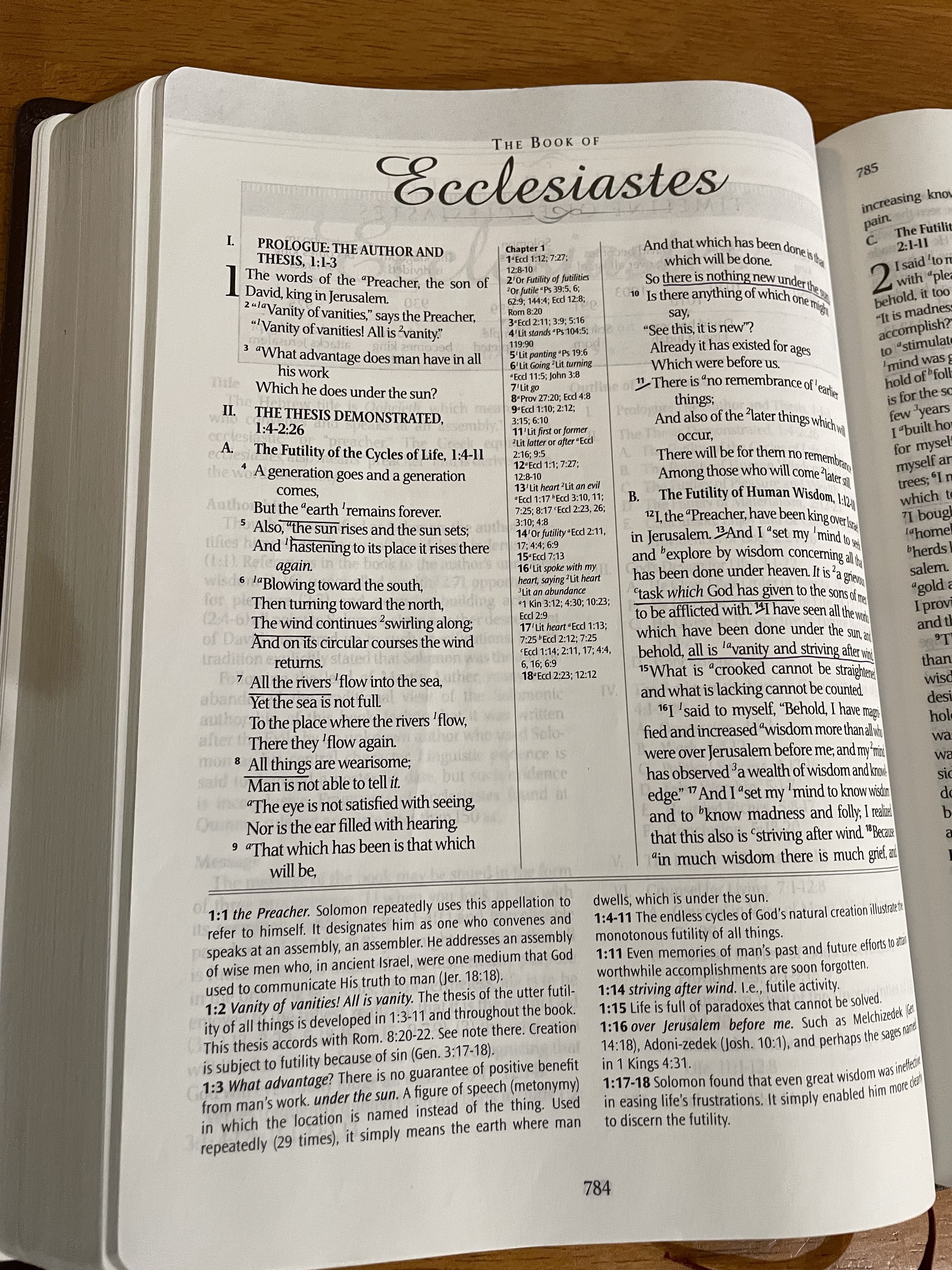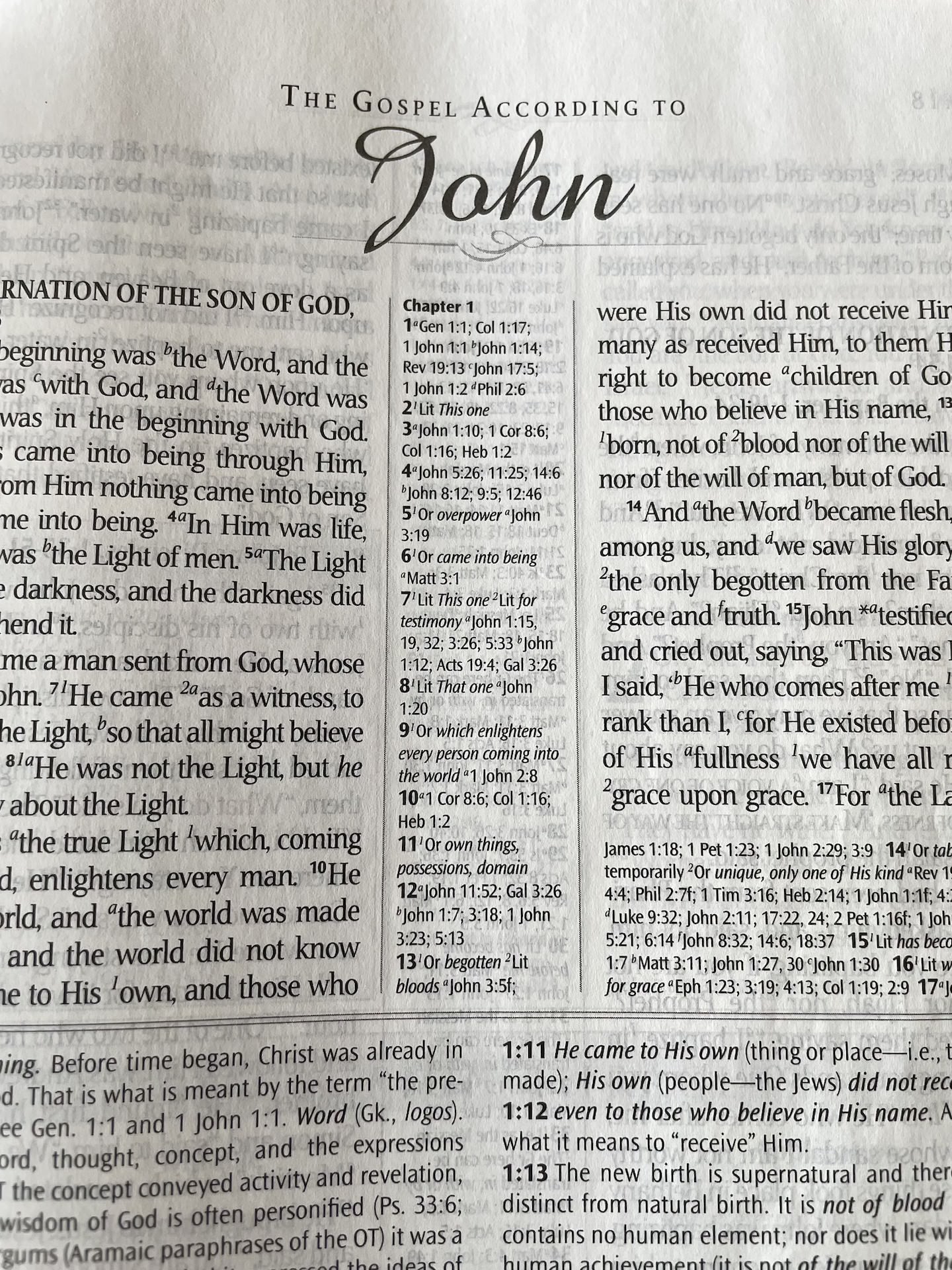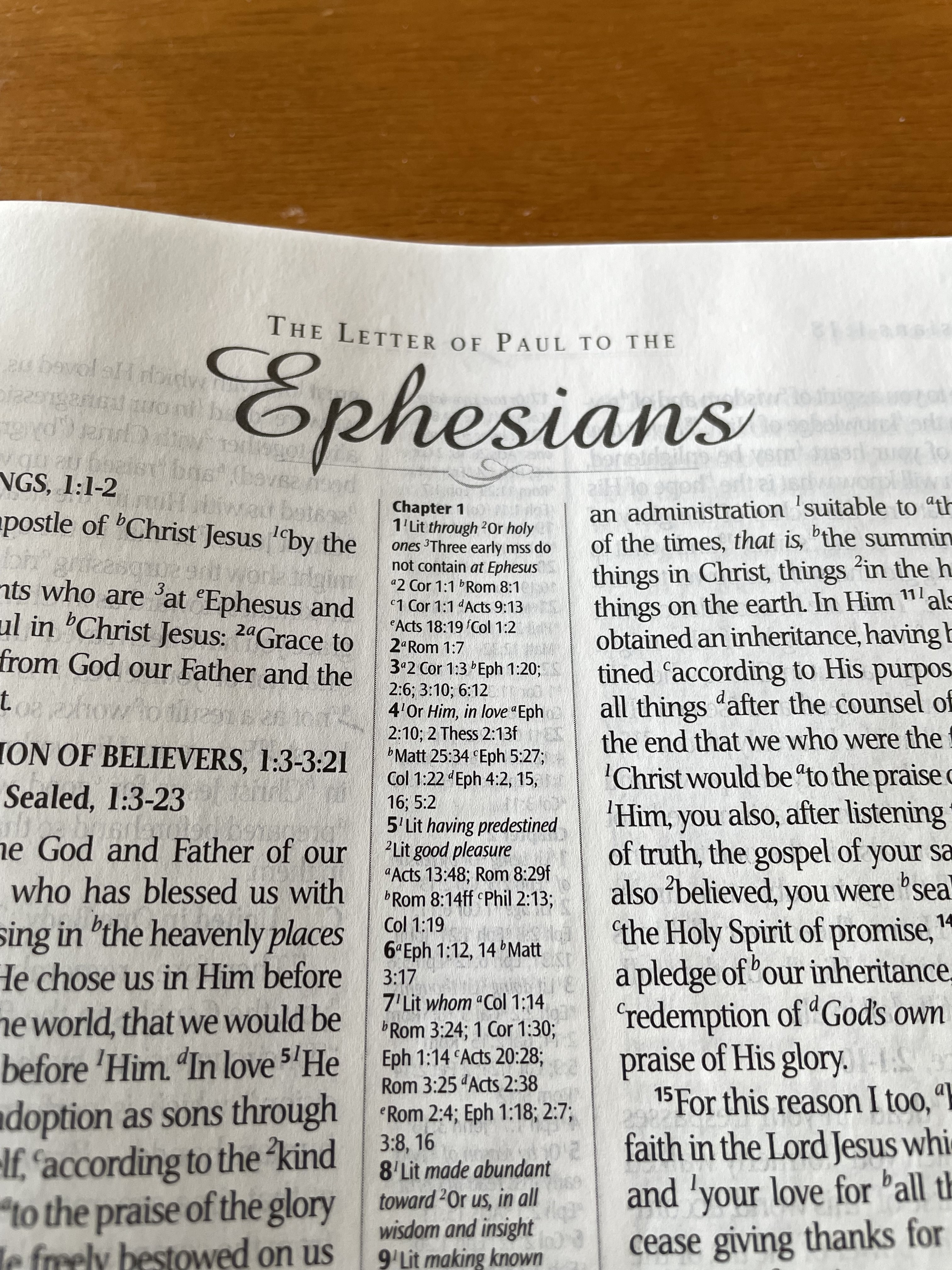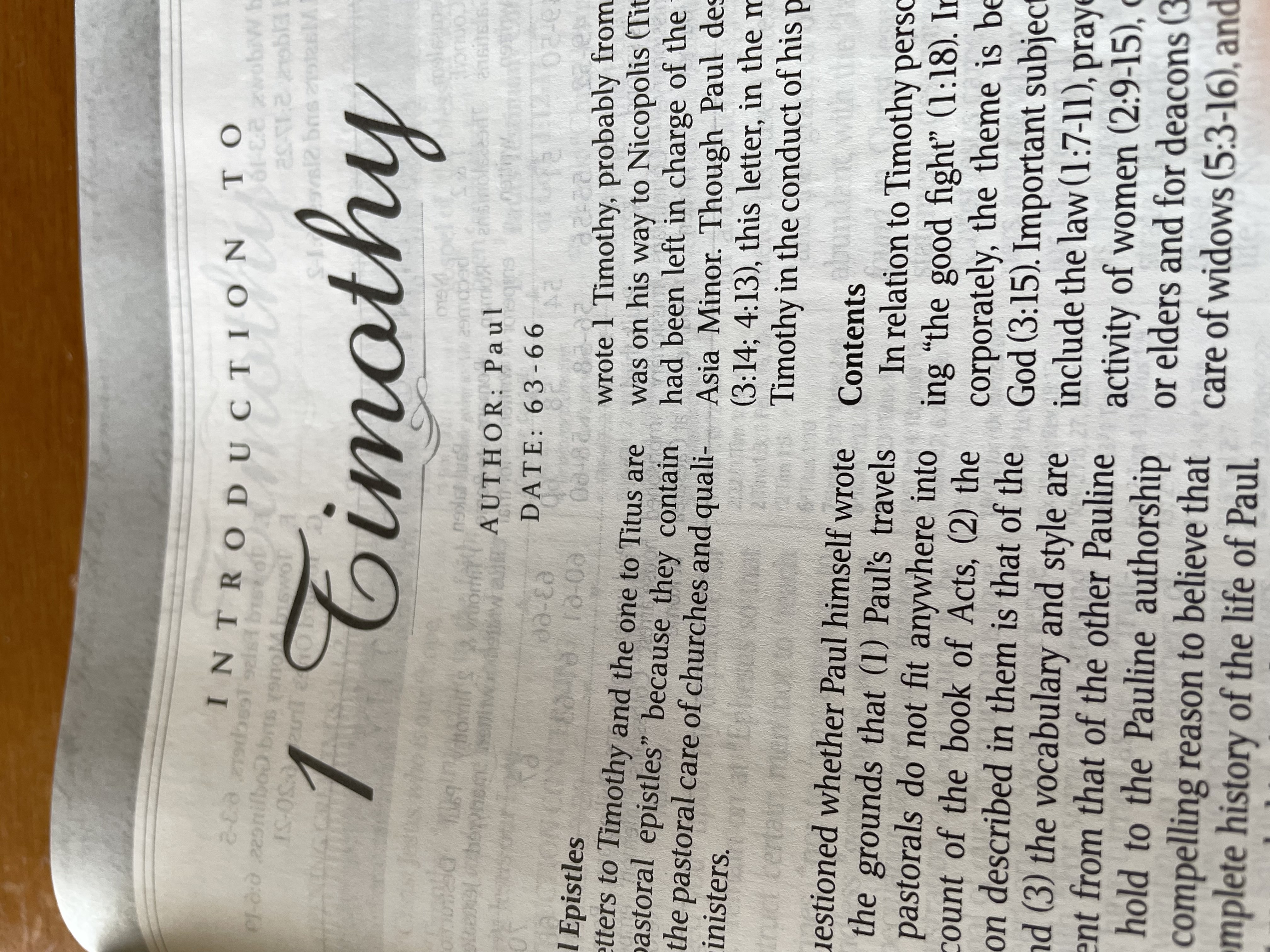How to Study the Bible
in Genre
Nobody reads a poem like a newspaper.
In the realm of literary analysis, understanding genre is paramount. This understanding holds profound importance when interpreting any piece of literature, especially ancient texts like the Bible. Genre refers to the categories into which literature is divided based on the stylistic and thematic criteria. These criteria define the structure of a piece of writing. By identifying the genre of a work, readers can glean insights regarding structure, purpose, and meaning, thereby interpreting the piece more accurately.
Literary genres are abundant and diverse. They commonly include fiction, nonfiction, poetry, drama, autobiography, fantasy, mystery, romance, thriller, horror, science fiction, historical fiction, philosophical texts, and satire. Each category serves a unique purpose and boasts distinct characteristics that signal how the text should be read and understood.
Within the Bible, nine prominent genres can be identified:
- law
- history
- narrative
- poetry
- wisdom literature
- prophecy
- gospel
- epistle
- apocalyptic literature.
Each genre not only conveys particular narratives or teachings but also uses specific literary forms and techniques. like different fonts in different books.
Some genres, like poetry, take different shapes in different centuries and cultures, but a piece of writing seldom changes genre. Poetry is never interpreted as narrative genre.

Genre and Context are Different
Genre is not the same thing as context. Any given context may contain more than one genre. The prophets, like Isaiah, switched genres in the middle of their messages.
Isaiah 44:1-8 gives a fine example of Hebrew poetry with its chiasm. This is a literary structure where, in it simplest form, phrases or clauses are arranged in a mirrored or "X" pattern, with the first and last elements being similar, and the middle elements in reverse order. The prophets used this poetic structure to emphasize a central point or create a sense of unity.
Isaiah switches to narrative genre in 44:9-20, like telling a story. Then Isaiah switches back to poetry in 44:21-28.
Genre refers to the type of literature, whereas context relates the surroundings, both broad and narrow.
Law

The genre of law features prominently in the Bible, notably in books like Leviticus and Deuteronomy. Law, as a genre, extends beyond biblical texts into general literature as well. For instance, legal documents and law codes, such as the Code of Hammurabi or modern legislative statutes, can be seen as examples of this genre outside the Bible.
Misinterpretations of legal texts within the Bible happen when readers overlook the genre and treat the laws as a different kind of genre, like poetry, which can be interpreted in different ways by people in the same time period and culture. God made the laws in the Old Testament clear enough to allow a lot of freedom in following those laws. Judaism and the religious hierarchy added their own interpretations of those laws and turned the Old Testament Law Code into a prison. When a Jew asked a Rabbi about how to obey a specific law, that Jew had not been taught that God wanted that Jew to decide how to carry out that specific law.
History

History as a genre within the Bible includes books like Kings and Chronicles. This genre is
prevalent in general literature, found in works documenting historical
events, biographies, or autobiographies. Such texts aim to recount
factual occurrences and offer insights into past lives.
A common error in interpreting biblical history is treating metaphorical writing as literal accounts. A metaphor uses a symbol to describe something. Metaphors are good if the reader already knows what it represents. Without that knowledge, the reader might miss the author's intention. Although the text does not state that the beasts in Daniel 7 refer to the kings of nations that will follow Babylon. The history of those nations confirmed that those beasts were kings, not four-footed animals.
Proper engagement with biblical history demands recognizing the ancient methods of recording events, which differ considerable with methods today. Today historians strive for accuracy in chronology, whereas during the time of Jesus, the writers used historical facts to promote the integrity of the person they were writing about. They built their framework around general chronology, but saw no need to put things in chronological order within sections. The Gospels show the flow of events by placing the birth of Jesus before His death (obviously). However, within a shorter time period, like the events that took place during the first year of Jesus public life, they put the miracles and events in an order that sent a message to the reader about the character of Jesus.
Narrative

This genre tells a story, whether fictional or non-fictional, focusing on events, characters, and a sequence of happenings. The characters drove the story. The setting is the time and place where the story unfolds. The plot refers to the sequence of events that make up the story. And the narrator is the person or voice telling the story.
Forty percent of the Old Testament and sixty percent of the New Testament is narrative genre. Jesus used this genre all the time.
Poetry

Poetry permeates the Bible, especially in the Psalms or the Song of Solomon. Other examples appear in general literature like Shakespeare's sonnets. Poetry is emotive and symbolic, frequently deploying metaphor and allusion to convey deep truths.
The misinterpretation of biblical poetry often involves reading figurative language literally. For instance, interpreting metaphors or similes as factual statements can result in obscure conclusions, much like reading a poem's hyperbolic expressions as literal truth.
In contrast, an accurate interpretation accounts for figurative language and recognizes its intent to evoke emotions or illustrate profound spiritual truths. Acknowledging the poetic devices ensures that messages are discerned as intended by the author.
Wisdom Literature

Wisdom literature in the Bible, such as Proverbs or Ecclesiastes, resonates with texts of sage advice throughout time, like Aesop's Fables. This genre seeks to impart practical and philosophical wisdom, often through aphorisms and reflective musings.
A miscue in interpreting such works is viewing maxims as certain guarantees rather than general truths. Akin to mistaking every fable as a strict moral law rather than a guide or counsel to consider.
Correct engagement with wisdom literature means understanding that proverbs depict likely outcomes. They offer guiding insights rather than binding decrees, much like any authorial intent in general literature.
Prophecy

Prophecy comprises a substantial portion of the Bible, exemplified by prophets like Isaiah and Jeremiah. In broader literature, prophecy can appear as speculative fiction predicting future events, much like Orwell's "1984," which has proven more accurate than expected.
Misunderstanding biblical prophecy often involves claiming every prophecy as having a solely future or single-day fulfillment. This mirrors taking speculative fiction as prescient prediction without regard for allegory or thematic roles.
Accurate interpretation acknowledges various fulfillments, understanding prophecy as containing layers of meaning, both immediate and eschatological, grounding it in its historical and literary context.
Daniel's predicted the coming of the antichrist. The evil Antiochus Epiphanes appeared roughly 300 years later. He fulfilled much of Daniel's prophecy, but not everything. The complete fulfillment of his prophecy is still in the future. A double fulfillment. The Old Testament prophesied the coming of the Messiah. Jesus came to die on the cross for humanity's sins. He stated that he will come again, a double fulfillment, to judge all those who have rejected his offer of salvation.
Gospels

The New Testament introduces the genre of gospel, biographical representations of Jesus' life, work, and teachings. This finds its secular parallel in biographies or hagiographies depicting the lives of significant figures.
Misinterpretations arise when these gospel accounts are treated as partially or purely mythological, ignoring the use of historical facts to convey a theological message through historical narrative.
Authentic interpretation values the blending of historical facts with theological motifs, understanding the evangelists’ purpose in relaying Jesus' significance rather than merely chronicling historical events.
Epistles, or Letters
 |
 |
Epistles, or letters, like those of Paul, offer personal and doctrinal guidance to early Christian communities. Epistles in secular realms include personal letters or essays, where authors communicate beliefs or advice to a correspondent.
Missteps occur when contemporary readers treat epistles as written exclusively for the people during the first century. If this were true, then Christianity would have had no guidelines for how to live and follow Jesus during the last 1900 years.
Interpretation becomes more difficult when some statements in the Epistles are turned into present-day commands, or some commands are interpreted as only applying to the people during the first century. 1 Corinthians 11: 1-16 falls into this category. One pastor stated that there must be 17 different interpretations of these verses, therefore, he chose to just let them exist in the text without taking a dogmatic interpretation for himself and his congregation.
Another debated passage is Titus 1:5, "This is why I left you in Crete, so that you might put what remained into order, and appoint elders in every town as I directed you—"
Does this just apply to Crete or to every church during the last 2,000 years? Reading further in Titus 1:10-12 reads,
"For there are many who are insubordinate, empty talkers and deceivers, especially those of the circumcision party.
They must be silenced, since they are upsetting whole families by teaching for shameful gain what they ought not to teach.
One of the Cretans, a prophet of their own, said, “Cretans are always liars, evil beasts, lazy gluttons.”
Some pastors say this applies to all churches, while other say that Crete had a special problem that needed more serious leadership.
Most of the passages in the epistles address the local churches, which continue to need that instruction today. Here we stumble over the difference between interpretation, contextualization (aligning the interpretation with the cultures of today) and application.
Apocalyptic

Lastly, apocalyptic literature in the Bible, like Revelation, employs vivid imagery and symbolism to convey ultimate divine intervention. Analogous works include dystopian novels or visionary texts addressing future collapse or transformation.
Misinterpretation happens when readers approach apocalyptic texts with literalism (which is difficult to clearly define), expecting specific events rather than symbolic portrayal of overarching divine themes. It's akin to expecting "Fahrenheit 451" to be a prophecy, not a critique of censorship.
The more general we interpret apocalyptic literature, the less we understand the details. The more specific we get, the greater the tendency to read present-day things into metaphors that might not occur for another 2,000 years.
The Book of Revelation was not written to inspire hope in humanity. The book is telling the future about God's judgment on humanity for their sins. The details of how each one of those prophecies will play out is a guessing game. When they happen, then mankind can say, "Oh, that's what the author meant by those verses."

In biblical interpretation, understanding and respecting genre enrich the reader's ability to decipher complex messages. This respect for authorial intent illuminates interpretative paths that honor the divine narrative throughout the various genres.
Ultimately, studying the Bible through genre ensures interpretative faithfulness to the text, empowering readers and teachers to convey ancient truths effectively in today’s context.
In conclusion, genre is a cornerstone in interpreting literature, helping readers grasp an author's intent. As evidenced in the Bible and general literature, the accurate identification and understanding of genre can prevent misinterpretation, enriching both personal insight and teaching efficacy.
 |
 |
As far as the Bible is concerned, taking genre seriously shows a person applying 2 Timothy 2:15 to his own personal life.
"Do your best to present yourself to God as one approved, a worker who has no need to be ashamed, rightly handling the word of truth."
